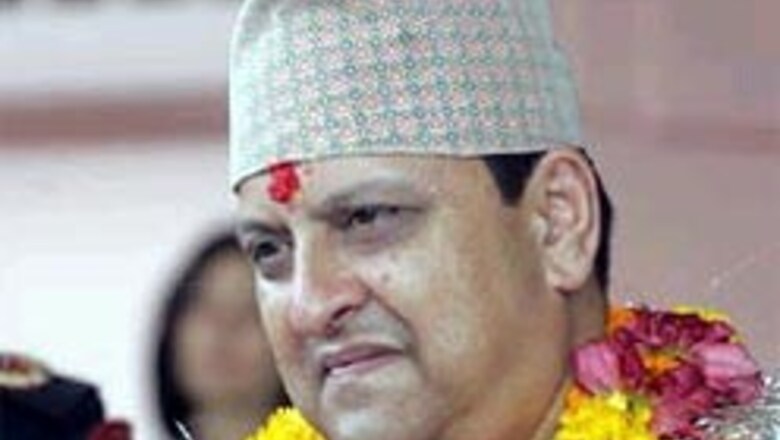
views
Kathmandu: Land owned by Nepal's King Gyanendra might be confiscated and handed to poor farmers, a minister said on Saturday, in the latest move to remove the monarch's privileges after street protest forced him from power.
Having already lost control of the army, being unceremoniously dumped out of his legislative roles and facing the prospect of a tax bill dropping on to the royal door mat, the government is now eyeing the King's property.
"We are collecting details of the land and property owned by the King or members of his family and if there is more land than the ceiling it will be seized," Land Reform and Management Minister Prabhu Narayan Chaudhari said.
Nepalis are allowed to own up to seven hectares (17 acres) of land, a key asset in the Himalayan nation where more than 80 percent of 26 million people eke a meagre living from the soil.
On Friday, the government said the royal family owned at least 1,700 hectares (4,250 acres) of land across the country. "This is only a preliminary estimate," Chaudhari said.
"We think the king and his family members own much more land than this. We are collecting details. The excess land will be distributed among the landless people."
It is estimated that one million people have no land in a country whose aid and tourism-dependent economy has been wrecked by a decade-long war with Maoist rebels.
More than 13,000 people died in the fighting. The King's property includes a combined 750 hectares (1,875 acres) of land occupied by the sprawling Narayanhity palace in the heart of the capital, Kathmandu, and the Nagarjuna forest resort on the northwestern outskirts of the city.
The rest is agricultural land, forests and plots in residential areas spread across seven districts in the landlocked country.
Officials said the government was also looking for details of land and property owned by former King Birendra and nine other royals, all killed in the 2001 palace massacre that brought Gyanendra to the throne.
"People must know these details which are also required to tax the king," said Chitra Bahadur KC, chairman of parliament's public accounts committee that is collecting the information.
Fierce anti-king protests forced Gyanendra to end nearly 15 months of absolute rule and hand power to the political parties that organised the protests, backed by the Maoists.
The rebels are now engaged in peace talks with the government after declaring a ceasefire. But analysts were skeptical the latest move to remove the King's privileges would have much success.
"It will be extremely difficult to bring the king to the level of common citizen because the government is an interim arrangement and has to satisfy different stake holders," analyst CK Lal said, suggesting the government was not strong enough to antagonise the old elite.




















Comments
0 comment